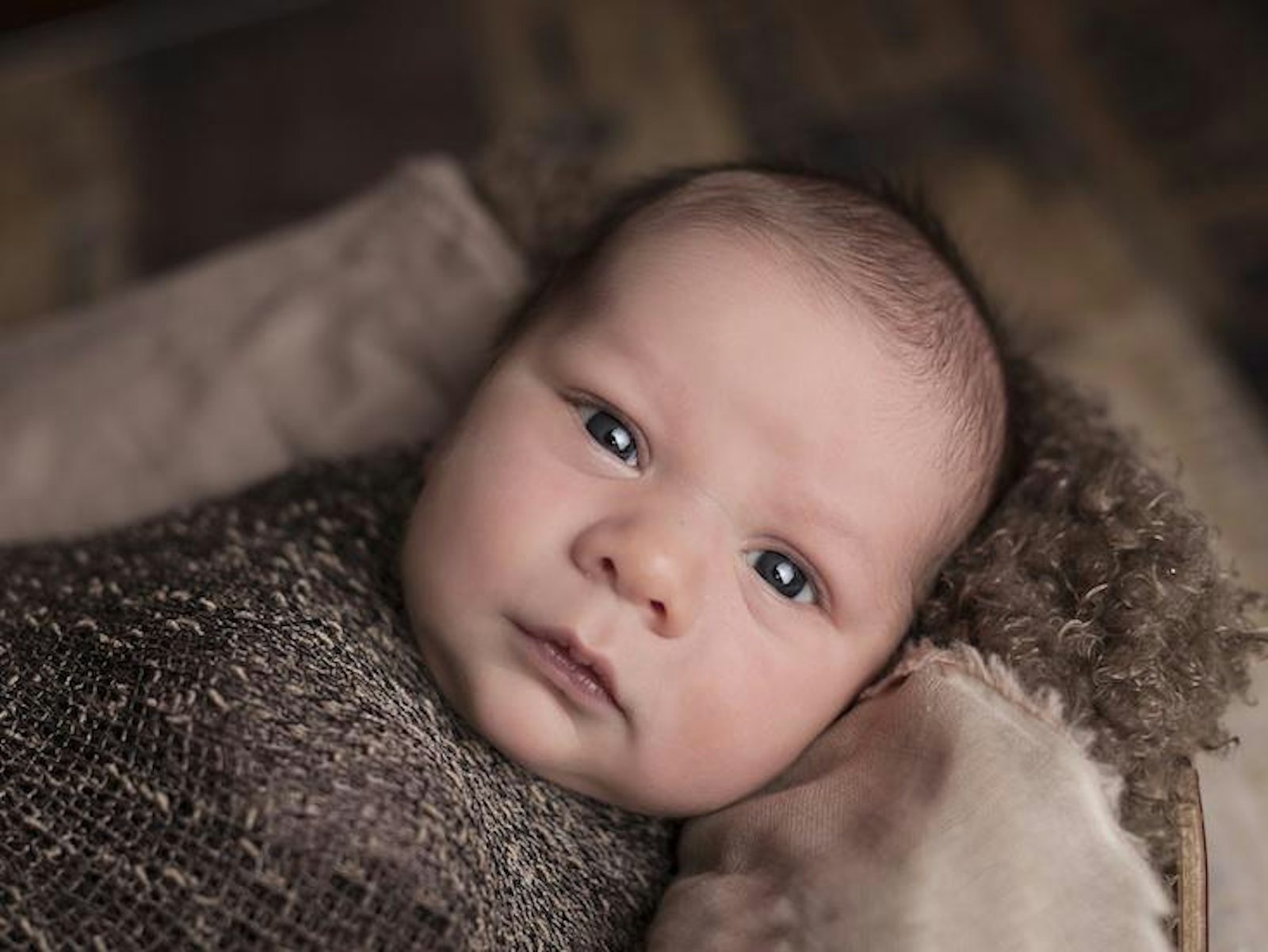Monkeys can tell numbers apart, make ordinal comparisons, and even add and subtract, but that’s where their abilities peak. The question is why. Our outlier status is a longstanding puzzle. Many studies of why humans are so smart have focused on how we use tools and technology, on our diets, and our language use. In a new study, though, titled “Extraordinary intelligence and the care of infants,” a pair of cognitive scientists at the University of Rochester used a novel approach to show how, instead, it could have been a combination of parenting smarts and early births that made us so brainy.
“The fact that our infants are helpless requires us to be intelligent,” says Celeste Kidd, the study’s co-author. Or you could also turn that around: Our infants are helpless because humans are intelligent. The two go hand-in-hand, Kidd says. Because babies are helpless, parents need to be smart to take care of them. Because humans are smart, they need to be born early, and relatively helpless, so that they can squeeze their big-brained noggins through the tight birth canal. “Human babies are born undercooked, essentially, because they have to fit through a human pelvis,” says Evan MacLean, an evolutionary anthropologist at Duke University. “There’s always a tradeoff—is this neural tissue worth it?” But that tradeoff, Kidd believes, could pull humans into an ever-tighter spiral of intelligence, in turn making them more and more helpless as infants. Kidd and her co-author, Steven Piantadosi, created a model that showed that, in theory at least, this feedback loop is possible.
They started with about 100 hypothetical species, each with a random combination of brain size (which the authors used as a proxy for intelligence) and gestation time. In the model, as in real life, bigger brains relative to body size meant a more dangerous birth. Each hypothetical species started with 1,000 individuals, which then ran through 100 generations. Most species gravitated toward a combination of smaller brains and longer gestations; like a gazelle’s, their hypothetical babies were born ready to rock, but remained forever dumb. There were also a few species, though, that drifted toward a combination of big brain size and early births. These species were the ones that had started out smart and early-born, which allowed them to fall into a feedback loop that reinforced those traits.
“Getting cognitive data from our dead ancestors is obviously impossible,” Jessica Cantlon, another cognitive scientist at the University of Rochester, not involved in the study, says. “This approach is extremely useful for making and testing predictions in the absence of those data.” The model also correlates with what Cantlon has observed in her studies of young humans and apes. “Monkeys and apes mature much faster than humans,” she says. “A one-year-old monkey infant is as good at solving a number task—like identifying the cup that has more food—as a three-year-old human child is.” As a way to ground-truth the model, Kidd and Piantadosi compared the relative intelligence of a wide variety of primate species to their gestation and weaning times. Sure enough, they found, the smarter the primate, the less the time its baby spent in the womb.
A feedback loop of intelligence and helpless babies would also lead to greater cooperation.
The study dovetails nicely with a number of theories of human evolution, says Jingzhi Tan, a post-doctoral associate in primate cognitive evolution at Duke, and could even point to why humans are so uniquely cooperative. Chimps will occasionally work together to hunt monkeys, he says, but most of the time they feed themselves. “They can just find a tree and get some fruit,” he says. Humans, by contrast, would be hard-pressed to fend entirely for themselves (as amply evidenced by five seasons of Naked and Afraid). Cooperation is especially important, Tan says, in helping pregnant women get enough to eat, and in taking care of the newborn. A feedback loop of intelligence and helpless babies would also lead to greater cooperation, he says.
Not everybody is convinced. Sarah Hrdy, an anthropologist and primatologist who has written multiple books on primate parenting, says that maternal intelligence likely has less effect on infant survival than how much support the new mother has from her female relatives. “The idea that our distinctive intellectual capacities derive from big brains produced by ‘runaway selection’ also runs afoul of what I know about postpartum preferences in human mothers”—they don’t like premature babies as much as normal-gestation babies, she says, and “find the distinctive cries of premature infants actually aversive—not exactly what we would expect after a deep history of premature babies being correlated with better outcomes.”
Kidd acknowledges that the possible connection between intelligence and gestation time doesn’t provide all the answers to how humans got so smart. “There are most certainly many factors that lead to the development of human-like intelligence,” she says. Nor does the theory provide an answer to the chicken-or-egg question of how humans arrived at the place of relative intelligence and short gestation that could have set off the feedback loop. Still, she says, it does provide a good way to understand why it was humans that became so extraordinarily smart, and not, say, dinosaurs, which can grow to relative maturity in their eggs.
“The thing I like about it,” Kidd says, “ is that it explains why we developed intelligence, and other species that had a lot longer did not.”
Zach St. George is a freelance reporter based in California, writing about science and the environment. Follow him on Twitter @ZachStGeorge.






























